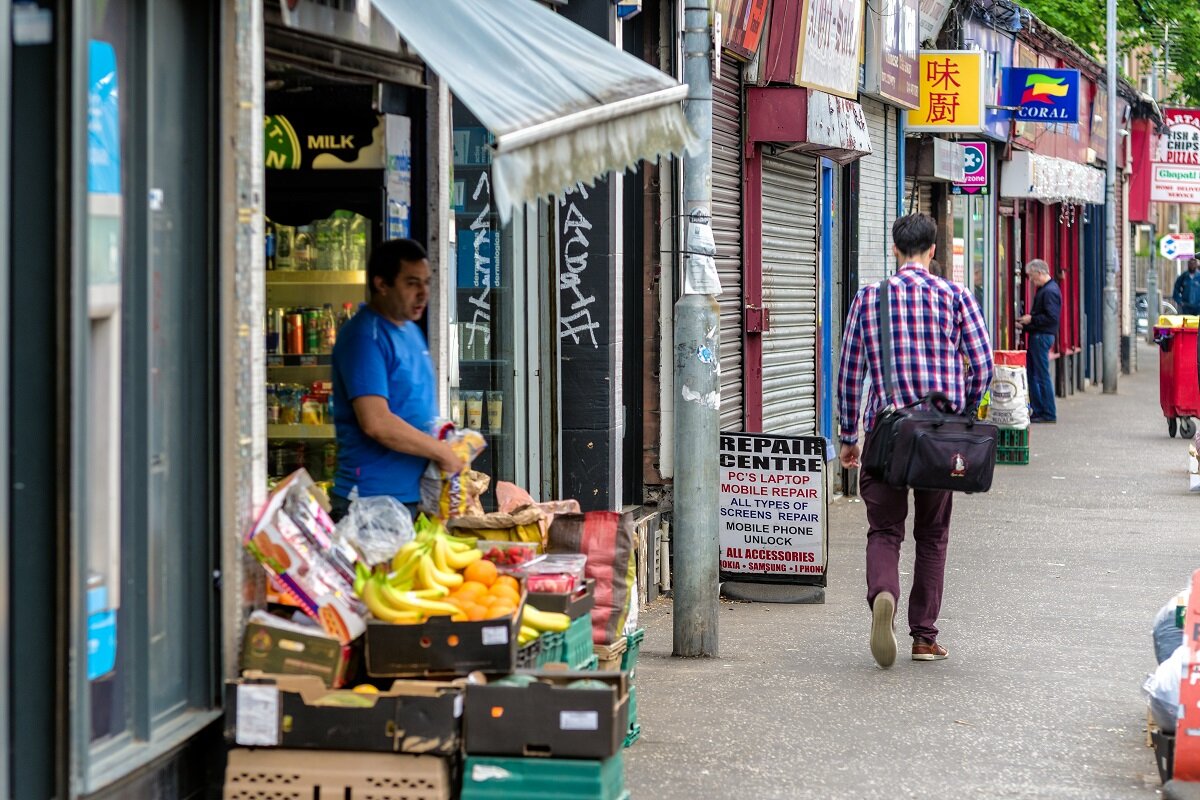How four cities are fostering equity-focused climate action
by REBECCA WESSINGHAGE | 19 August 2021 | Posted on CityTalk - a blog by ICLEI
Cities bring together all types of people into confined urban spaces, and they also reveal stark social inequalities. In dense urban environments, the contrast between rich and poor is particularly visible. This is the case in many industrial legacy cities with traditional workers’ districts. Close to former industrial sites, many of these heavily built-up neighborhoods are suffering from soil and air pollution, aging housing stock and lack of green space. Industrial decline often led to the additional burden of unemployment, population decline and derelict properties. These challenges are a stark contrast to wealthier parts of the city, that usually see the bigger share of public and private investments.
For example in Essen, Germany, unemployment and poverty rates are significantly higher in the industrially-shaped north of the city than in the more affluent southern districts. More people are renting in lower quality housing with less access to nature, and are experiencing the health related consequences. In Glasgow, UK, similar conditions are causing striking health inequalities: life expectancy for men differs by more than 14 years between the affluent Jordanhill and the former industrial Bridgeton neighborhoods. The Covid-19 pandemic has exacerbated existing inequality issues even more as access to health care, private living space and recreation areas have become more important than ever and many food banks, shelters and help desks remained closed for months.
Essen and Glasgow are among four Urban Transitions Alliance cities that have been selected for this year’s global peer exchange to advance their equity and climate challenges. A strong focus of the 2021 exchange is effective collaboration with local partners to ensure city programs meet their full potential.
1. Glasgow
Social inclusion and recovery of derelict sites through urban food models
The city of Glasgow is currently transitioning away from its manufacturing heritage towards a just and sustainable future. Aiming to become one of Europe’s most circular cities by 2030, Glasgow is committed to reinvent its identity upon a more innovative, fair and participatory economic growth. As part of its Urban Transition Alliance Challenge for 2021, the city will focus on the development of a circular strategy to repurpose derelict urban spaces that lower the quality of life in adjoining neighborhoods while creating unnecessary maintenance costs. To turn these sites into community assets, Glasgow aims to incorporate circular urban food systems. This scheme combines multiple benefits. By transforming their food value chains, the city can catalyze environmental goals while creating shared spaces for recreation, generating fair local jobs and improving food security. This emphasis on food will bring fresh local produce to shelves which were empty during the Covid-19 pandemic.

2. Essen
Leveraging climate action through cross-sectoral financing
Essen, Germany, is a city that has been bearing the impacts of its past mining and steel production for many years but has also been striving to improve the quality of life of its inhabitants by transitioning to a greener and more sustainable future. Recognized as Europe’s green capital in 2017, Essen is currently tackling the challenge of financing the necessary climate adaptation and mitigation measures. In effect, the impacts of climate change – such as droughts and heavy rains – not only threaten the city’s infrastructure and the quality of public spaces but also the interests and operations of different economic actors like insurance companies and health providers. Adaptation measures like green infrastructure projects don’t only have a positive effect on urban climate and air quality, they also have the potential to significantly reduce health insurance costs in the long term. In light of this common interest between the public and private sectors, Essen wants to unlock financing opportunities for climate initiatives with social equity benefits.

© Johannes Kassenberg
3. Gelsenkirchen
Engaging with local businesses to combat climate change
Shaped by its industrial heritage, the city of Gelsenkirchen still struggles with social consequences of structural change: low average income as well as high unemployment and poverty rates. But the city is committed to reducing greenhouse gas emissions and improving adaptation to climate change equitably across the city on its path towards a just and sustainable future. Aware that this ambitious task requires the support of the private sector, the city is working closely with the Science Park to connect and work with local stakeholders. The partners are developing the Climate Forum initiative, aiming to establish a network that connects local companies in knowledge exchanging and seeking cooperation opportunities in the development of climate change projects that increase green space and improve quality of life for all residents.
4. Shijiazhuang
City-business collaboration to unlock sustainable investments
Located in the national economical center of China, the Yuhua district from the city of Shijiazhuang has started its transition toward a greener future. Aiming to become an example of sustainable transition, the local government, companies and citizens in Yuhua are coming together to find triple-win solutions. Convinced that local businesses can play a leading role in sustainable development, Yuhua’s administration is currently implementing a strategy aimed at harnessing the resources and commitment from the local businesses to better achieve the Sustainable Development Goals (SDGs). In addition to environmental and climate benefits, an effective city-business collaboration between the Yuhua government and local business partners has the potential to strengthen inclusive employment opportunities.
All the initiatives above are explored within annual Urban Transitions Alliance Challenges, which are current issues submitted by member cities to receive input and recommendations through the Alliance network. All challenges, as well as further equity-related topics of interest, are discussed through the Urban Transition Alliance webinar series.
The Urban Transitions Alliance is an initiative led by ICLEI – Local Governments for Sustainability, a global network of more than 1,750 local and regional governments committed to sustainable urban development, and supported by the Stiftung Mercator, a German foundation committed to solidarity and equal opportunities.
Article and images retrieved from https://talkofthecities.iclei.org/how-four-cities-are-fostering-equity-focused-climate-action/
